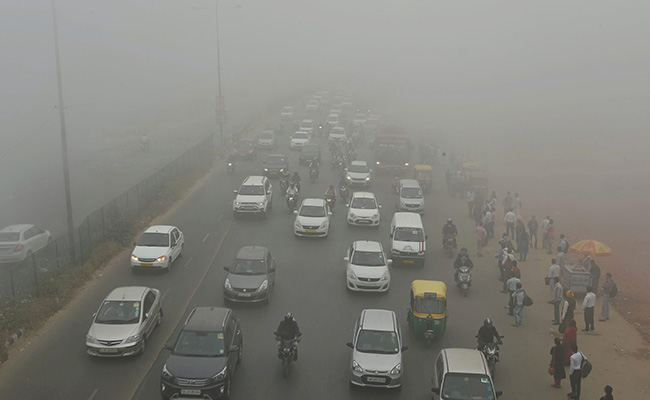
The government on Wednesday decided to prepone the introduction of cleaner BS-VI grade auto fuels in the national capital from April next year to address the problem of alarming pollution levels in Delhi and adjoining areas.
State-owned oil companies have been asked to dispense BS-VI compliant fuel from all their pumps in Delhi from April 1, 2018, against the earlier deadline of April 1, 2020, which would now be followed for the rest of the country. They have also been asked to examine the possibility of introducing BS-VI auto fuels in the whole of NCR from April 1, 2019.
While the availability of BS-VI compliant automobiles is still a fair distance away, executives at state-owned oil companies said there was no issue with the use of this clean fuel in the existing vehicles. But emission levels of existing vehicles using BS-VI fuel would be different from those designed to use the fuel.
“We are ready to provide this fuel in NCR. In fact, we have been already providing BS-VI grade fuel to auto companies for testing. The scale of this test production would be increased from our refineries to meet the needs of the NCR from the next fiscal,” said an IOC executive, asking not to be named.
A couple of new refineries are already capable of producing BS-VI grade fuels, which contain 10 parts per million (ppm) of sulphur as against 50 ppm in BS-IV fuels. Delhi consumed 906,000 tonnes of petrol and 1.26 million tonnes of diesel in 2016-17 and meeting that requirement from April next year would not be a problem.
In a Twitter post, oil minister Dharmendra Pradhan said “the decision to prepone the introduction of BS-VI grade fuel in NCT of Delhi w.e.f. 1st April 2018 in place of 1st April 2020 is a sincere effort to curb the vehicular pollution in Delhi and adjoining areas.”
Fuel meeting BS-IV emission norm was introduced across the country from April 1, 2017.
Oil refineries will need to invest Rs 80,000 crore in upgrading petrol and diesel quality to meet cleaner fuel specifications by 2020. According to IOC, for petrol engines, one of the most critical specifications is Research Octane No. (RON), which has improved from 88 in BS-II to 91, which is at par with regular 91 octane gasoline (petrol) required for BS-VI emission norms. Sulphur specification for petrol and diesel will be reduced 50 times for a level of 500 ppm for BS-II fuel to 10 ppm in BS-VI.
Instead of step-wise upgradation from BS-IV to BS-V and then from BS-V to BS-VI, the government plans to switch over directly from BS-IV to BS-VI auto fuels by April 1, 2020.




